By Alethea Ng
The glowstick-orange “OPEN” sign in the store window pings to life, surrounded by twinkling fairy-lights. Underneath, stout white letters proclaim, “ARTS MARKET.” Knick-knacks clutter the bottom of the display window. Next to a doll’s dress, a mouse head peers at the road through a pair of round spectacle frames.
Lindsay Ellis steps out of the store and onto the rain-spattered sidewalk. She sets up a plastic sign (“GIFTS: CREATE, SELL, SHOP”). As she climbs the stairs back into the store, she passes a shelf that supports, among other things, a doll and a basketful of socks. The market is divided into little booths, each one displaying a different artist’s unique wares. Ellis, the Leslieville Arts Market’s manager, calls the artists “makers”. “We all make. We’re makers, or curators, or vintage vendors,” she says.
She plugs a phone into the market’s sound system, scrolling until she finds the upbeat playlist she assembled herself. Then she turns her attention downwards, pulling off her rain boots in favour of sneakers that used to be black but now show hints of grey. It may be drizzling outside, but inside it is warm and dry and bright. The soft twang of an electric guitar thrums through the air. It is noon on a Tuesday, and the Leslieville Arts Market is open for business.
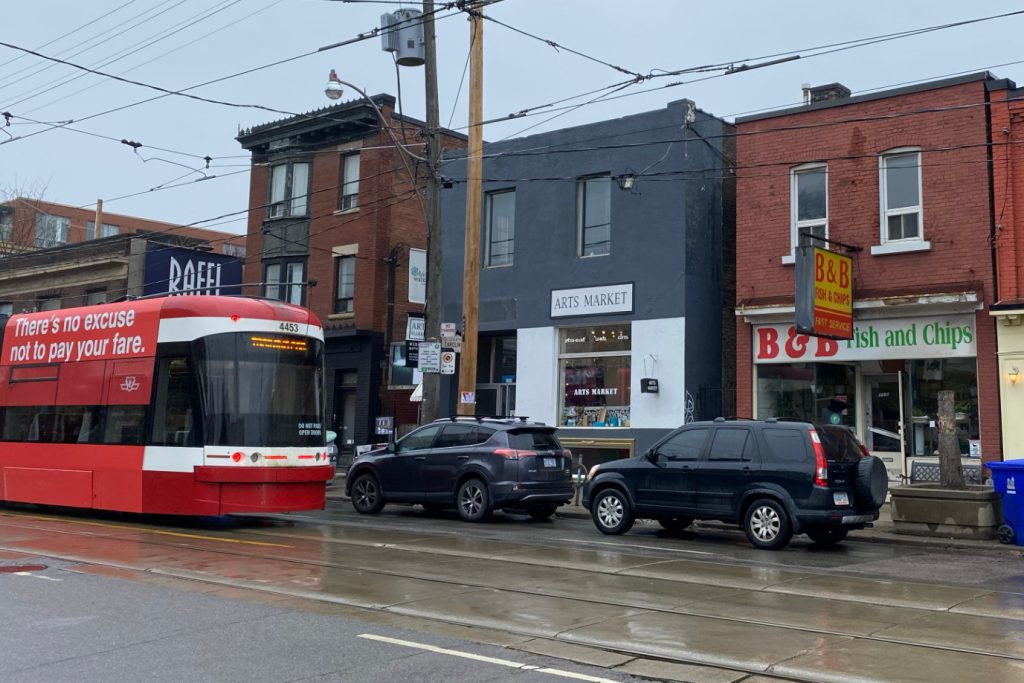
A 501 streetcar rumbles past the Leslieville Arts Market on Queen Street East on March 3, 2020. (Alethea Ng/T•) 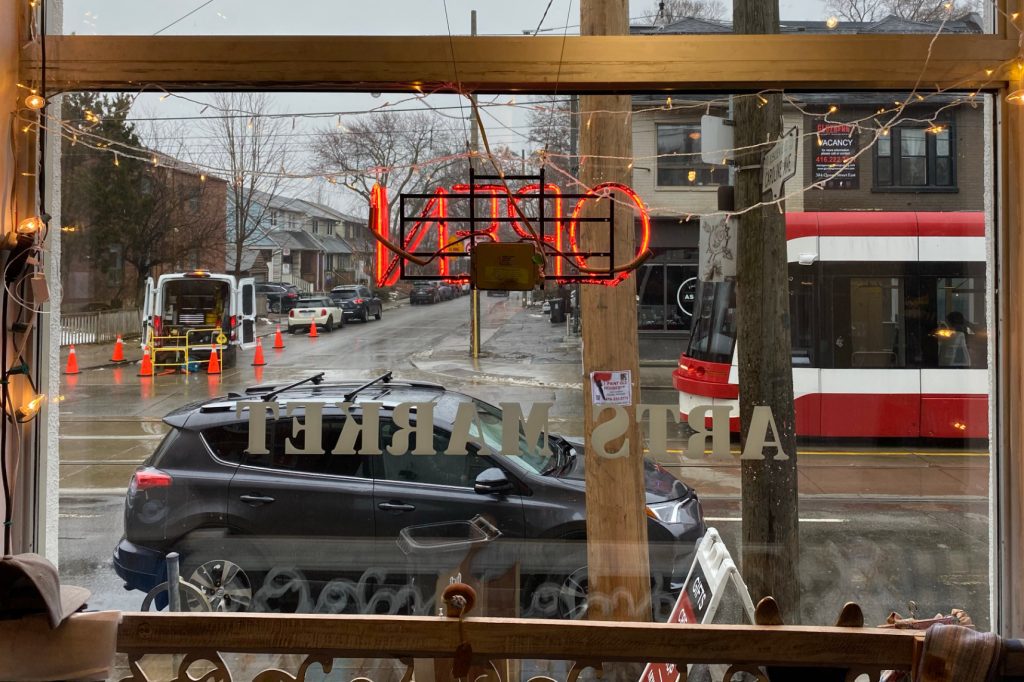
The “Open” sign in the window is turned on when the market opens, framed by fairy lights and looking onto Queen Street East on March 3, 2020. (Alethea Ng/T•) 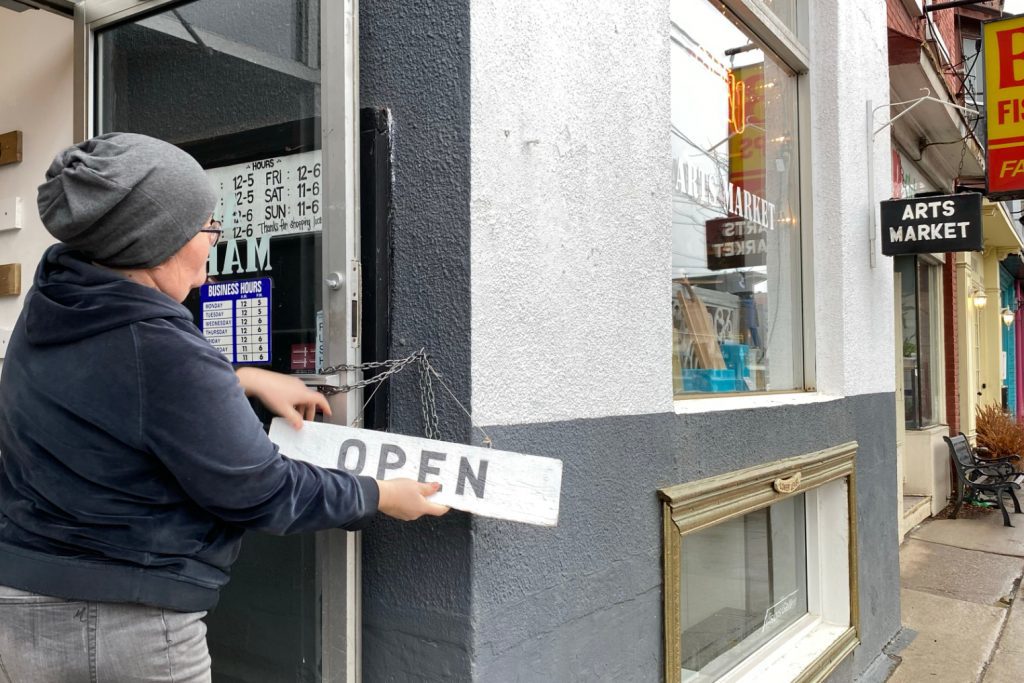
Outside the Arts Market, Lindsay Ellis, its manager, uses a chain and an “Open” sign to keep the door open throughout the day, on March 3, 2020. (Alethea Ng/T•) 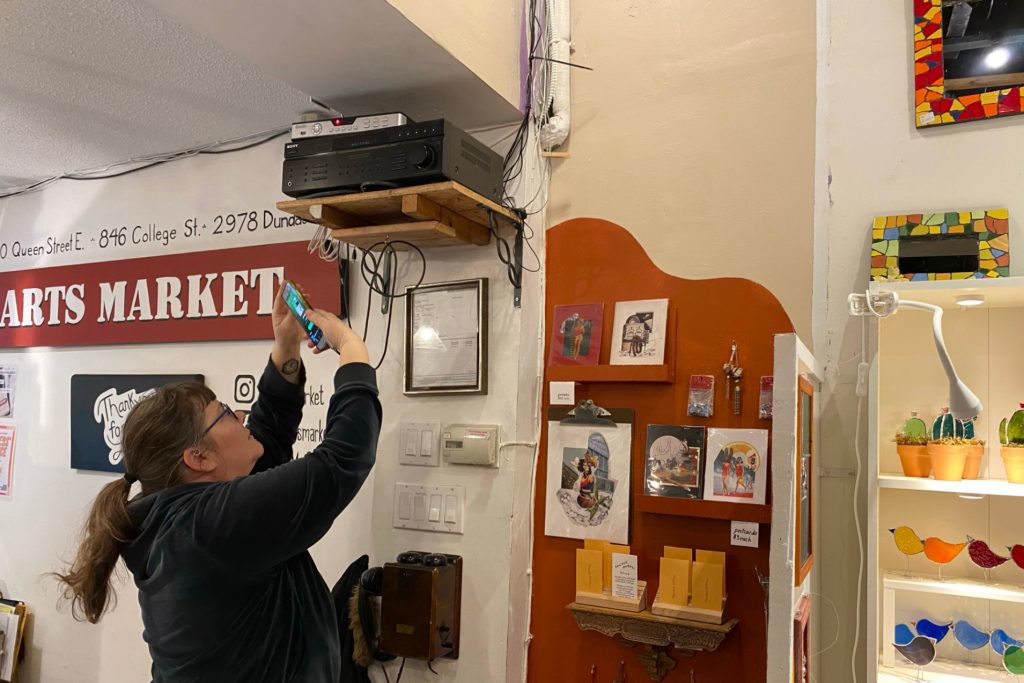
Lindsay Ellis uses a phone to connect to the market’s soundsystem, playing upbeat pop music over the speakers, in the Arts Market on March 3, 2020. (Alethea Ng/T•) 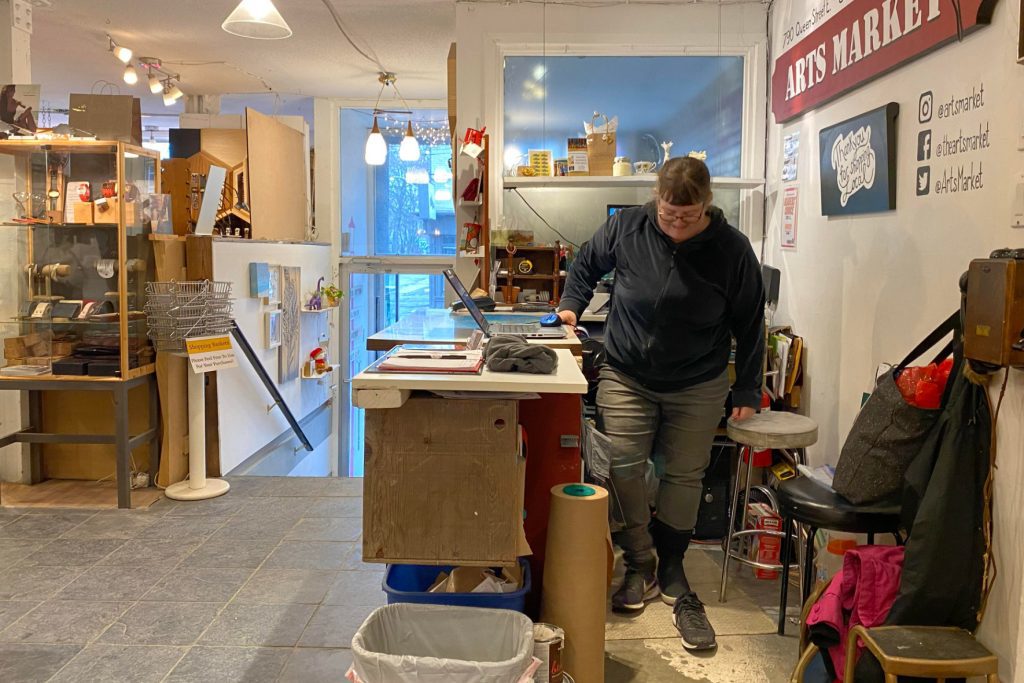
It’s raining outside, but inside the Arts Market, Lindsay Ellis takes off her rain boots in favour of well-worn running shoes, on March 3, 2020. (Alethea Ng/T•)
The market has stood at this location for almost nine years, the brainchild of Toronto artist Daniel Cohen, who needed an affordable place to sell his art. Cohen knew he couldn’t wouldn’t make enough to cover the costs required to keep a store running on his own. “I wasn’t a big-enough artist to have a whole shop,” he says. “I thought, if I could have a piece of a shop, that’ll suffice.”
Cohen set up the market at 1114 Queen St. E. and started working to recruit other vendors to join him in the space. He looked for people who were creative and friendly, but he admits that at the beginning, they weren’t exactly lining up to join him. He spread the word in his community of local artists, and hoped his efforts would be enough.
Despite Cohen’s worries, vendors started joining the Arts Market at a steady pace. There was enough interest from local artists for him to start a second location on College Street two years later, and then a third in Dufferin Grove a few years after that. In the summer of 2019, Cohen opened the Arts Market’s fourth location in The Junction. Today, there are so many potential vendors that they need to be waitlisted to get a booth at any of the locations.
Cohen believes the Arts Market’s success is partially due to its appeal to artists. “It’s all about freedom for each person,” he says. “They don’t have any long leases, they’re not stuck in any way. They have all the freedom in the world to create their own space and decide what their company needs.”
Despite the short leases, Diana Hara has been a vendor at the Leslieville Arts Market for two years. She attributes her commitment in part to Cohen himself, and to Lindsay Ellis, who manages the location where Hara rents her booth. “They really want to see you succeed,” says Hara.
Founder of The Cure Organic, Hara dreams of one day opening her own brick-and-mortar store, where she can sell her line of natural hair growth products. Right now, though, she’s focused on building her customer base so she could handle slow months in the future without worrying about her finances. “I would have to have enough clientele to be able to stand that,” she says.
Among the market’s current vendors is Link Tong, who remembers learning how to run a small business back when he was a teenager living in Hanoi, Vietnam. The mid-autumn festival was in full swing, with throngs of people jostling through the streets. Tong stood among them, hands full of painstakingly-folded paper flowers and masks that caught the eye of passers-by. He and his friends weren’t the only vendors in the crowd, but most of the others lining the streets sold cheap, mass-produced products, imported from neighbouring China. “It was a great success,” Tong remembers as his voice gets more animated. “With a unique product, with the right price and the right timing, you will do well.”
Tong brought his passion for handmade crafts to Toronto, where he now designs and hand-crafts pop-up greeting cards for his business, Roses Without Thorns. To him, the Arts Market is a way to get his work in front of customers without the time commitment of starting his own physical store. “It’s almost impossible to both manage a store and also produce your creations,” he says.
Unlike Hara, Tong has no plans to start a brick-and-mortar store to sell his products. Instead, he sells his cards in the Arts Market, at trade shows, and online. “With all the investments and the fixed costs at the beginning, it’s hard to predict how it turns out for small businesses,” he says.
For Ellis, manager of the market’s Leslieville location, the market provided her with a space she could never have afforded on her own. “Never in a million years would I, as an artist, have been able to have a brick and mortar store on Queen Street East in Toronto,” she says. As a manager herself now, Ellis helps other vendors get their products in front of an audience. “We’re here for the artists. That’s our footprint,” she says.
Walking along Queen Street East on a chilly morning in March, an observant pedestrian would have noticed many empty and soon-to-be-changing storefronts. They might have seen a sign on a restaurant’s door that read, “Thank you for a great six years!” or “It’s been an honour to serve this neighbourhood.” They might have noticed an empty store window that they could have sworn had bright bags in it a week ago. According to Statistics Canada, just under five per cent of Canada’s small and medium-sized businesses don’t survive their first year. Over half of these businesses don’t make it to the end of year nine. In terms of rent, one square foot of retail space in Toronto East cost $22.82 per month in the fourth quarter of 2019, an increase of over 50 per cent from the fourth quarter of 2012, according to the Toronto Regional Real Estate Board.
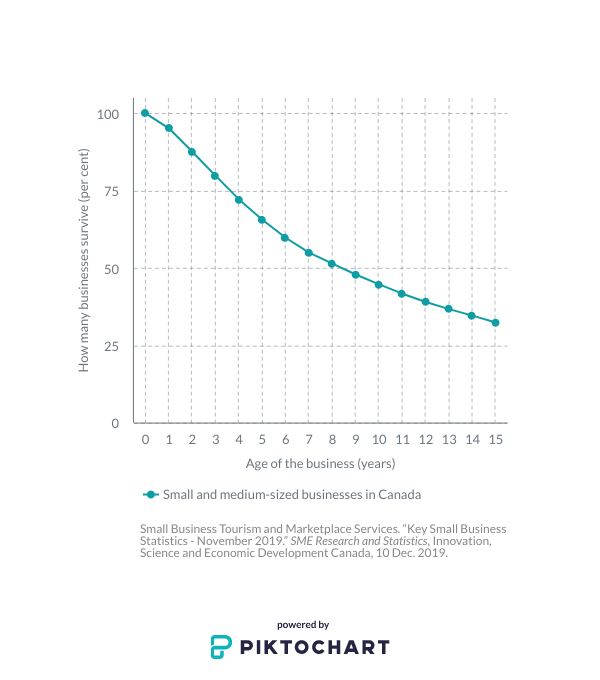
Cohen, the Arts Market’s founder, believes that more local artists will turn to markets like his as rent continues to climb. But even the Arts Market isn’t immune to rising rent prices. “My landlords raise rent, and I raise my rent. That’s the way it goes,” he says. “Eventually it will dissuade people from taking a chance opening up a store on their own.”
